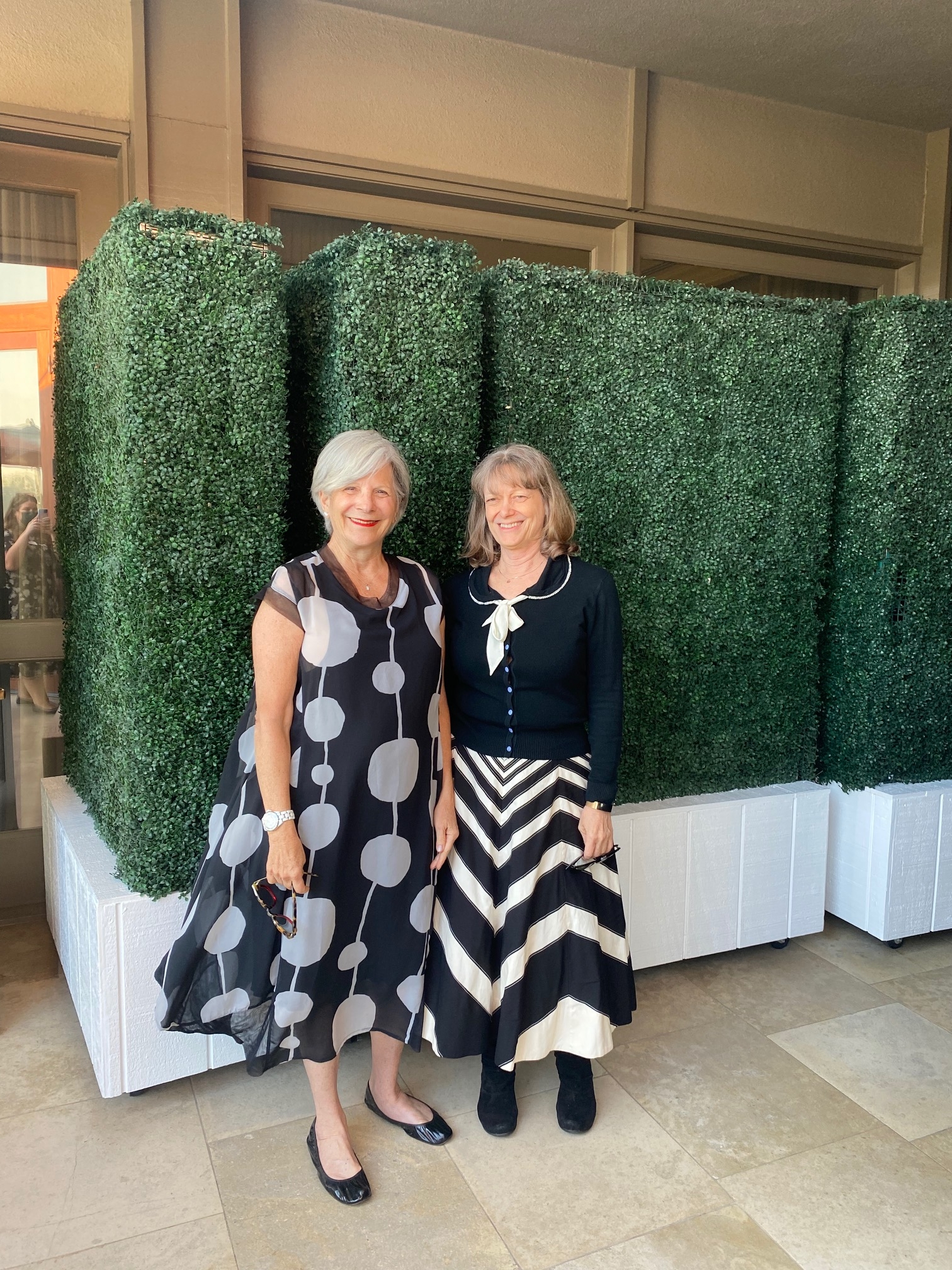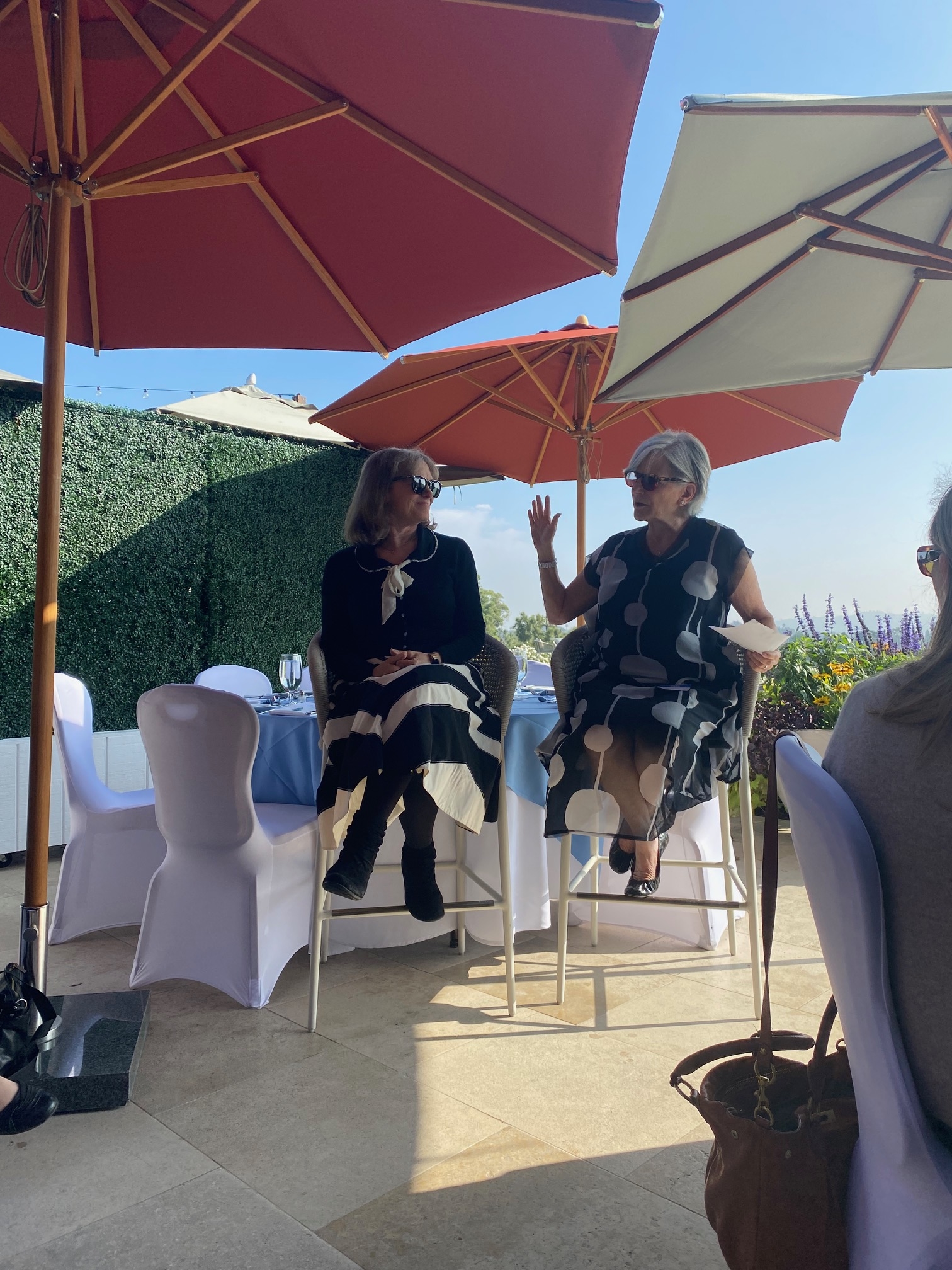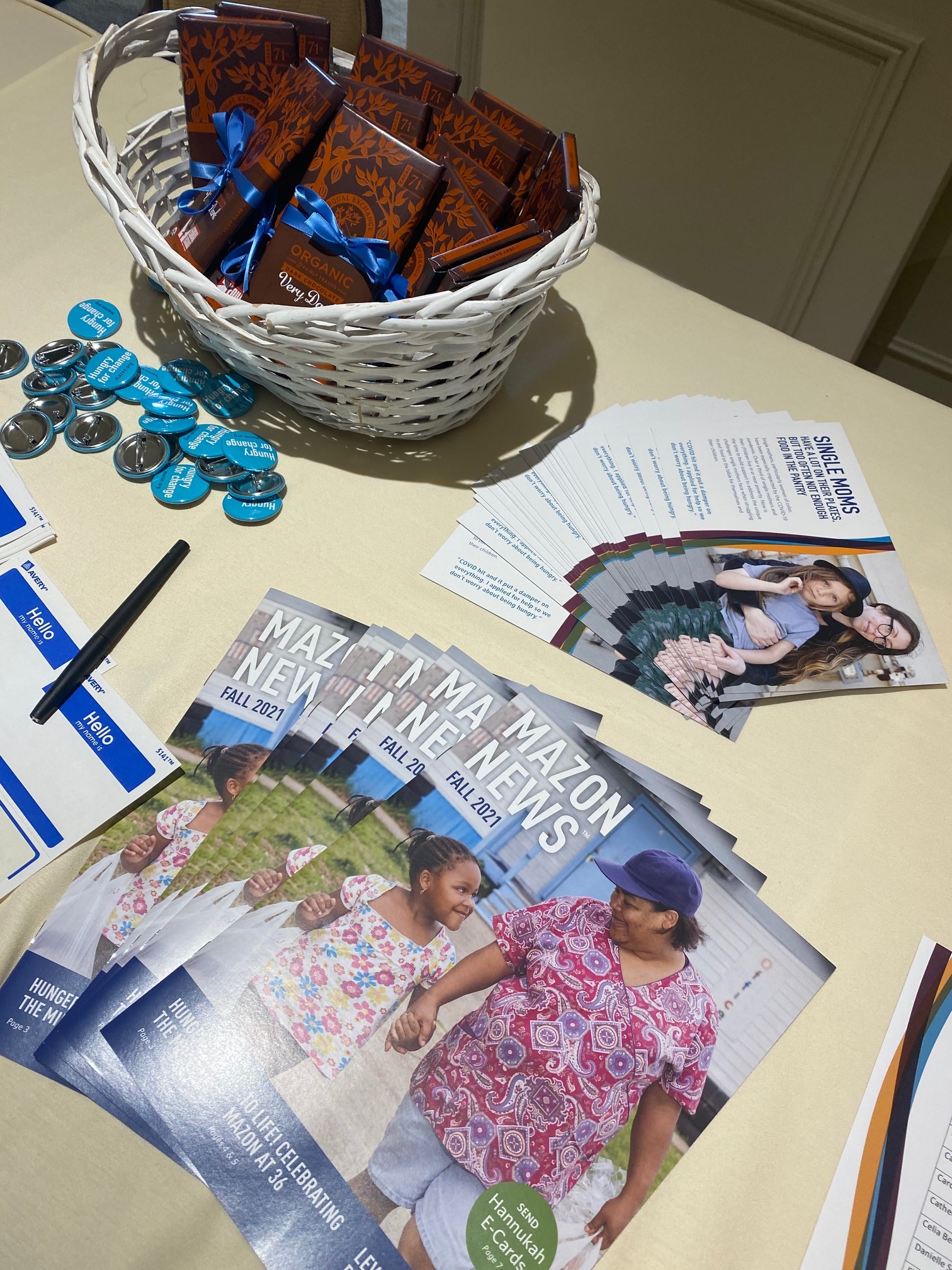Earlier this month, MAZON hosted an intimate outdoor luncheon in Los Angeles to announce and officially launch a new policy priority area: hunger among single mothers.
The luncheon included a conversation between two remarkable leaders in the Los Angeles Jewish community, both of whom have personal experience as single mothers: Abby Leibman, MAZON’s President and CEO, and longtime MAZON supporter and event hostess Marcie Zelikow.

Abby delivered a powerful message to the attendees: “There’s a mythology in the United States that women have arrived, that we have broken through the glass ceilings that have existed in the past. That we are in fact part of the leadership, the culture, the norms of the United States. I’m here to tell you that isn’t true. It’s just not true.” Abby continued to point out that just because there are some women in high positions of power in the United States, it does not mean that all women in this country are well off.
Marcie reflected on her personal experience of struggling to support her young son on a tight budget, remarking that, “I’m telling you this story because I want you to understand there are people like me all over. I guarantee you there are families in Beverly Hills, in Bel Air, in Brentwood, in every neighborhood in Los Angeles, people you know, people whose children you know, that are dealing with these same issues because single mothers just can’t make ends meet. An orthodonture bill, a dental bill can destroy your entire budget for the year. That’s it. You’re done. You can’t cope. The shame of having to go and apply for government assistance is devastating. Trust me, I’ve done it.”

During the luncheon, Abby and Marcie also presented national figures demonstrating that today, approximately 80% of single parents in the U.S. are women, and 40% of these women are food insecure. These staggering numbers tell a story about millions of single mothers in the U.S. who experience longstanding issues ranging from employment discrimination to caregiving responsibilities to the debilitating impact of the wage gap. During the COVID-19 crisis, women — and particularly women with children — experienced disproportionate economic setbacks that continue to create additional barriers to accessing food. In addition, women dominate the ranks of essential workers in the U.S..

With over 36 years of thoughtful and strategic policy expertise, MAZON is uniquely positioned to address food insecurity for single mothers and to raise the visibility of this issue. Together with our partners around the country, we are eager to explore, understand, and spotlight the barriers single mothers currently face, while also developing and advancing policies to overcome those barriers. As Abby said during the event, “MAZON is doing this because we know that women are vital to this country, the success of all of us. As an organization steeped in social justice and Jewish values, we are lifting up a community and a population that I know based on my experience is one that is still suffering out of the spotlight.”
For more information about how to get involved in this effort, please contact Naama Haviv, MAZON’s Vice President of Community Engagement, and learn more at mazon.org/single-mothers.